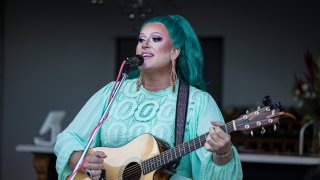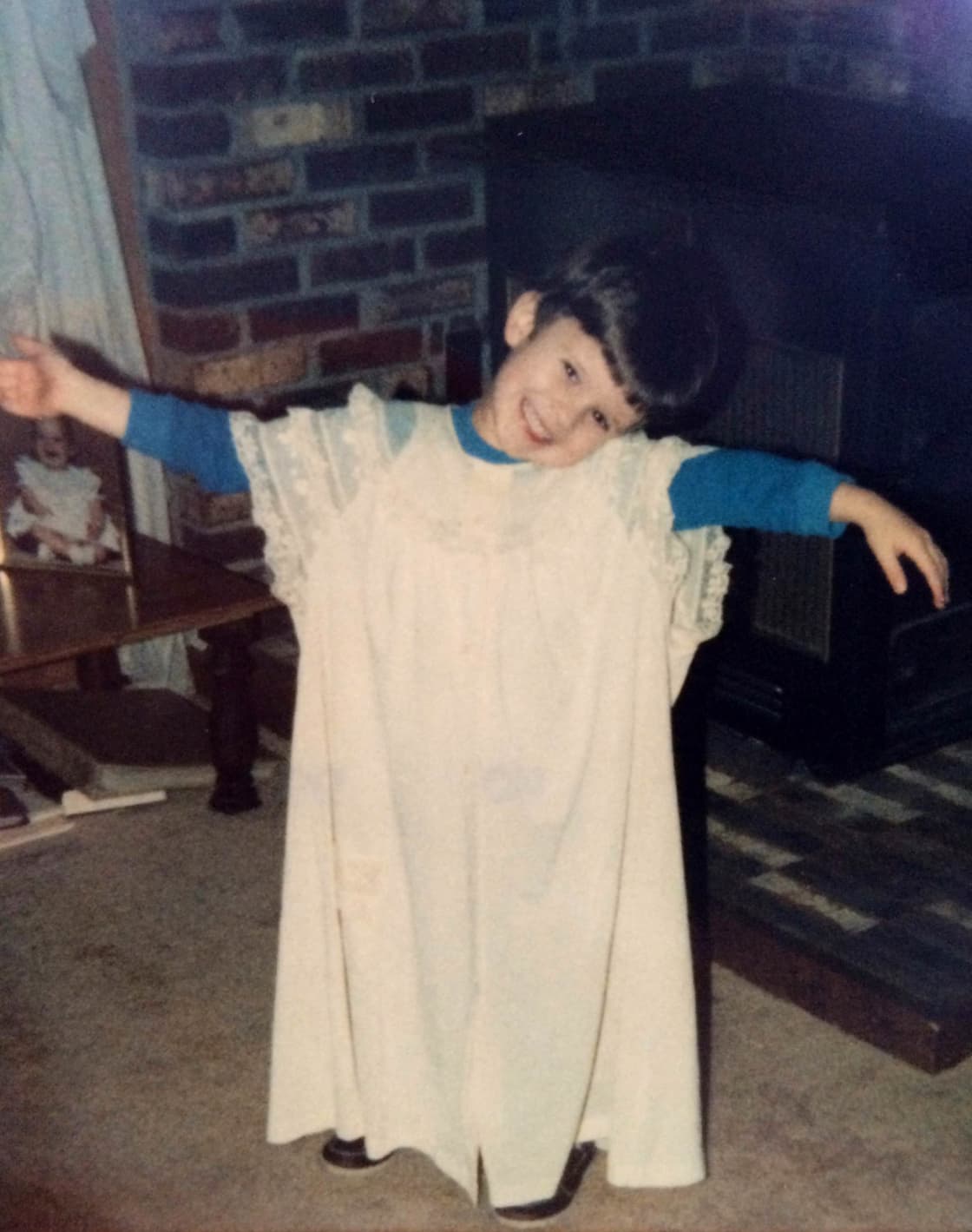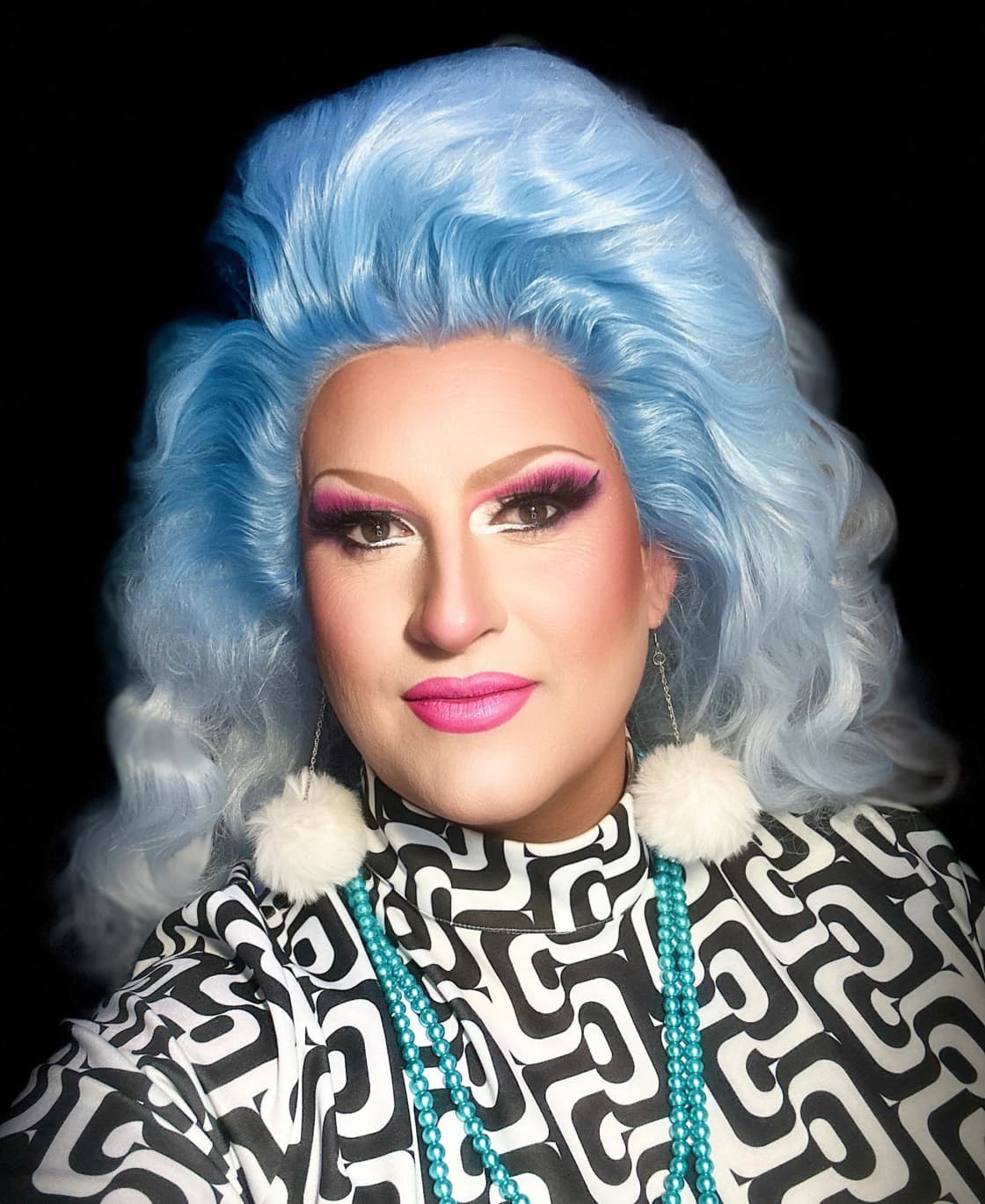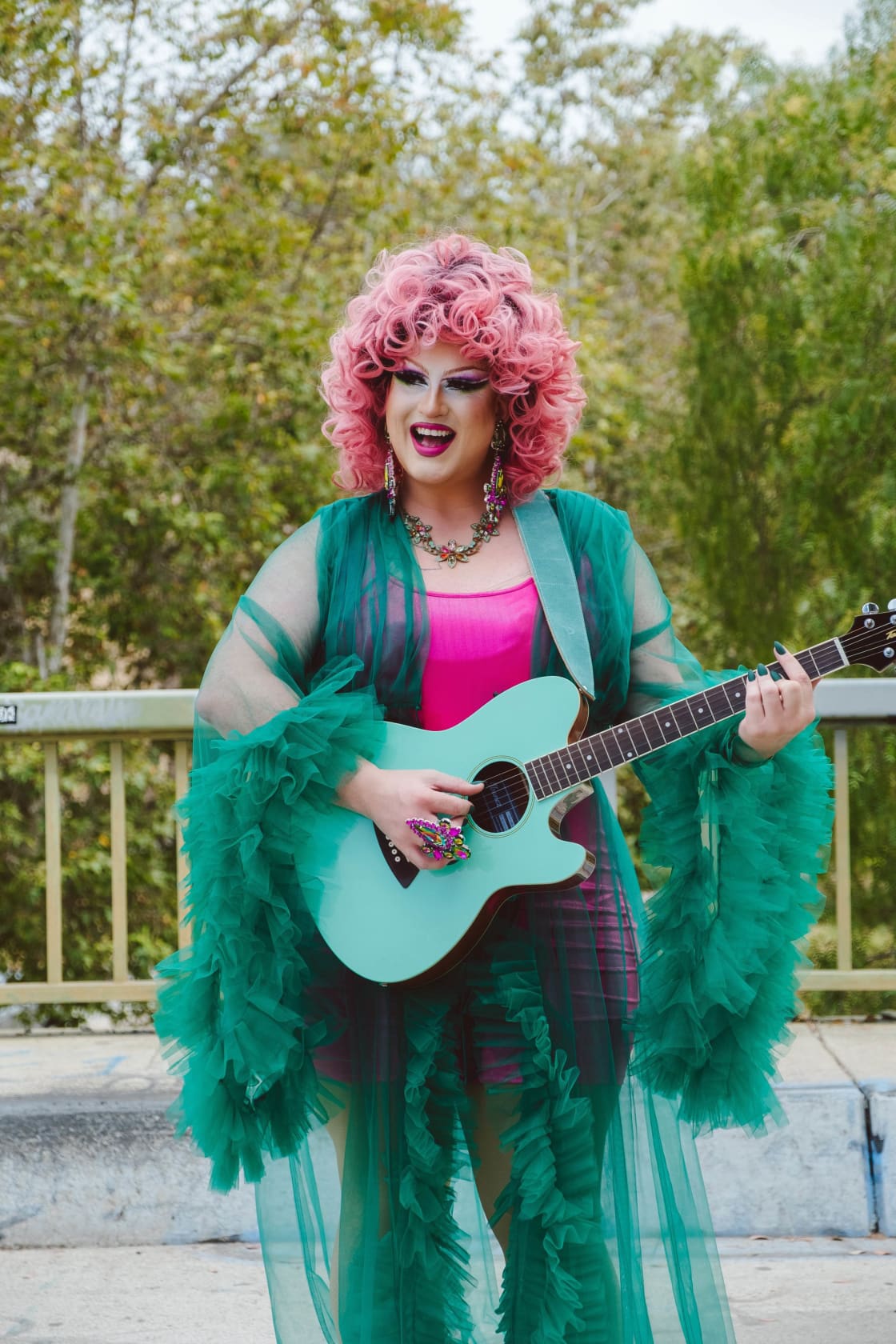
For “shame-slaying, hip-swaying, singing-songwriting" drag queen Flamy Grant, drag and Christianity can go hand in hand.
The 41-year-old made waves in the world of contemporary Christian music last week when her debut album, "Bible Belt Baby," landed the No. 1 spot for top album on the iTunes Christian music chart. One of her singles on the album, "Good Day," hit No. 2 in the top songs category.
"This is a huge moment for the 16-year-old version of myself who was writing songs, hoping to be on the same stages that Amy Grant was playing as I was growing up," the gospel and roots musician, who now lives in San Diego, tells TODAY.com. "It's massive and wonderful, and I’m so grateful.”
A challenging childhood
Get a weekly recap of the latest San Francisco Bay Area housing news. Sign up for NBC Bay Area’s Housing Deconstructed newsletter.
Grant grew up in an evangelical fundamentalist community in Asheville, North Carolina. During her childhood, she recalls not being allowed to listen to music outside of what was available at her local Christian bookstore.
Yet, Grant says that "the impulse (toward drag) was clearly always there," having photos of her younger self "prancing around" in her mother's heels and nightgowns.

But Grant says her church community didn't foster that self-acceptance to embrace who she really was.
"Things that would have been considered traditionally feminine or feminine characteristics were mostly subtly shamed out of me, but sometimes very blatantly shamed out of me, like 'That’s not how a boy behaves' kind of thing," she says.
"I just learned really fast that if I was going to thrive in that community, I had to perform and exist in the world in a very specific way," she adds. "And that was to be a boy and grow into a man and not rock the boat too much."
After college, Grant moved to San Diego as part of a church planting team, a group that would start new churches. It was there that she got involved in Exodus International, a gay conversion organization where she enrolled herself in conversion therapy for five years. (The organization is no longer in operation.)
“I wanted to fit in that badly,” Grant says. “That’s how deep my internalized homophobia went. And after all of those experiences, I finally got to a point where I was like, ‘You know what? I’ve done everything I can do. My sexuality is not changing.’”
Leaving religion, then finding it again
To reconcile with her sexuality, Grant temporarily left the Christian faith in 2017 and started a podcast called "Heathen." She describes it as an early precursor to the faith deconstruction movement, where a person critically analyzes, rethinks and often shuns beliefs held by their religious faith, sometimes leaving their religion altogether.
Grant says that through her podcast conversations with musicians engaged in deconstruction, she began to see how Christian faith was "so much bigger" than the evangelical world in which she grew up.
"When that's your starting point in life — that you believe that you're a wretch, that you're sinful, that God can't love you — that does not set you off on very good footing," she says. "That is why religious trauma is a real thing, and why so many of us have spent thousands of dollars in therapy as adults."
She says that part of the reason she returned to Christianity was to help children going through the same isolating experience she endured.
"Those kids need to know that [evangelicalism is] not the only option available to them," Grant said. "That they can have a faith and they can be a Christian and it doesn't have to look like (that) version of Christianity."
The viral moment that changed everything
Grant started doing drag during the COVID-19 pandemic lockdown. Eventually, her pastor at her church at the time — a church she called "really progressive, inclusive, LGBTQ+ affirming" — asked her to give a sermon in drag.
To prepare, she made a TikTok video in which she did her makeup and told a story in 60 seconds.

The next morning, she woke up to a social media storm. Her video had gone viral.
"I was weeping as I was scrolling through the comments and just listening to people say things like, 'Wow, this makes me feel seen. This makes me feel safe. Thank you so much for doing this,'" Grant says. "That was when it clicked for me: I've been doing this drag thing just for me to heal my own inner child, but it's actually doing some similar work for a lot of people."
Having grown up loving Christian music and now seeing the impact her drag content made, Grant saw that she could "marry the two" and ultimately created her life's biggest dream: becoming a Christian music artist.
For Grant, who spent her youth singing and writing songs, a passion for music and performance especially fueled her creative journey into the world of drag.
"I want to make music," Grant says. "I want to have an impact. I want to be able to play shows for people. I love to entertain folks, I love to be in front of an audience."
And so, Flamy Grant was born — a stage name with a cheeky reference to Amy Grant, one of her favorite Christian singers.
A beacon of hope for the next generation
For Grant, "slaying shame" is the dominant theme in each one of her songs on "Bible Belt Baby," which features track titles like "Holy Ground" and "I Am Not Ashamed" in addition to "Good Day."
Grant says she hopes kids growing up in a similar Christian community like she had will find her music, and that her visibility as a Christian artist will make LGBTQ+ youth feel safer in Christian spaces.
"I watched people get kicked out of my community for breaking those rules, and it's scary because they tell you that there's nothing good waiting for you on the other side. The whole world is cast as this deviant, scary, bad place," Grant says. "So it means everything to me to be able to have a little bit of presence on the Christian charts in Christian music space."

She says the response to her album hitting No. 1 in the Christian genre on iTunes has been "overwhelmingly positive," and that the biggest reward has been receiving messages from people who were inspired and encouraged by her music.
"One woman just messaged me today and was like, 'My soul has been craving an opportunity to venture back into spiritual community, and I just haven't known how to do it because I just believed that the church wasn't for me anymore ... This has changed that for me, and it's given me the courage to explore queer-affirming churches.'"
In a month, Grant will quit her day job and move to North Carolina to become a full-time singer-songwriter drag queen. She also has tour dates lined up throughout the rest of the year, but she's most looking forward to her solo comedy cabaret "Godless Sheathen" on Sept. 15 in Nashville, Tennessee.
Looking forward, Grant's work is driven by her hope to be an inspiration for youth and potentially paving the way for others to join her in her creative space.
"People want to tell you, 'You can't do that,'" Grant says. "'You can't do drag in church. You can't do drag, period.' I'm like: 'But I can.'"
This story first appeared on TODAY.com. More from TODAY



